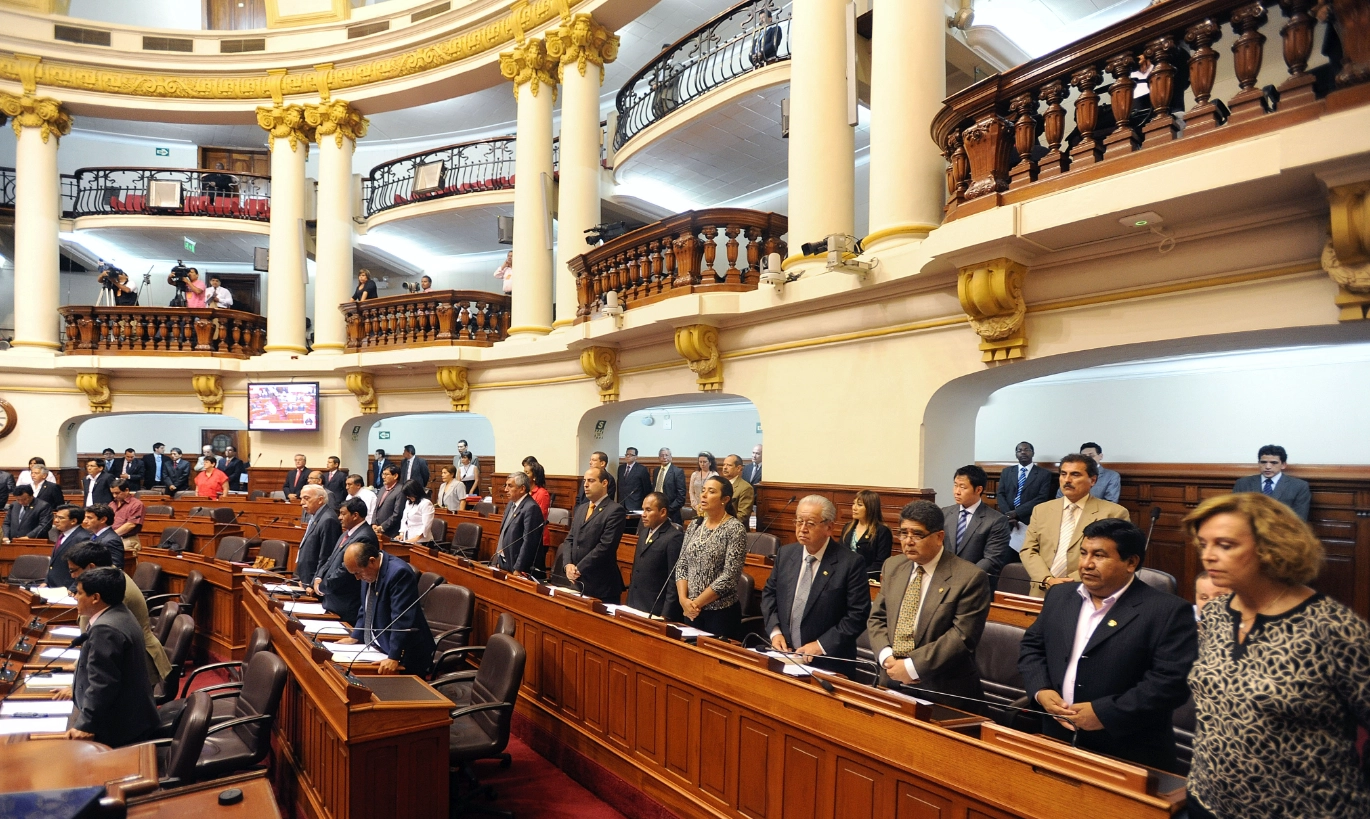After more than three decades, Peru once again has bicameralism. The last bicameral parliament was closed by Alberto Fujimori due to the 1992 coup d’état. But its necessary return has been inversely proportional to the quality of the congresspersons who have approved it. Its reestablishment is taking place amid a highly discredited congress. Only 6% of Peruvians approve of its performance. Thus, the bearers of the constitutional change also bear their limitations and small interests. The modification reaches 53 articles of the Constitution which, for its number and impact, is the biggest constitutional change of the 1993 charter.
The long road to bicameralism has meant the deterioration of the (under-representative) unicameral parliament, not only because of the increasingly poor quality of the representatives but also because of the abuse of questionable laws approved in record time, exempting committee procedures or double votes. Besides, since 2016, subjecting, harassing, and keeping the president in suspense with the sword of Damocles of a misinterpretation of the figure of the presidential vacancy.
The disaffection of politics and the visceral rejection of the Peruvians toward the parliament, political parties, and the politicians is so high — certainly earned with all merits — that everything that is born from their hands, will also be rejected. Bicameralism has not been saved from that, which, in 2018 went through a referendum, as one of the four questions driven by Martín Viscarra who proposed it, counting on the support of the majority of the Peruvians, but the change of important articles in congress, led the former president to backtrack and bicameralism was rejected by more than 90% of the voters.
However, since July 2021, an unprecedented far-right coalition and a conservative left have been created in congress, which has become an overwhelming power that does not cease to control institutions (Ombudsman’s Office, Constitutional Court, SUNEDU), as well as denounce, dismiss, disqualify or try to do so, officials of the National Board of Justice, Public Prosecutor’s Office and electoral bodies.
Certainly, there are dozens of congresspersons with open fiscal files, others mired in scandals, and many defenders of corporate and mafia interests. The force of the votes has become the parliamentary dictatorship that nobody can stop or control, least of all a government that lives on the oxygen ball placed from the parliamentary seats. Without it, it does not survive. In this way, the reforming impulse of bicameralism has been more for the clear purpose of reelection than to improve the parliamentary building. In this way, they have redesigned a political system with a clear imbalance in favor of the legislative branch and, within it, in favor of the Senate.
Until 1992, the parliament was composed of a 60-member chamber of senators and a 180-member chamber of deputies. Fujimori reduced it from 240 congresspersons to 120. Peru which was the fifth country in population and number of congresspersons in Latin America, became the fourteenth, having since then fewer parliamentarians than Bolivia, Ecuador, Chile, or Uruguay, countries with much less population. Thus, an extreme under-representation developed. This enormous institutional change was made possible by the presence of an authoritarian government, as happened when Ecuador and Venezuela also changed their parliamentary design from bicameral to unicameral.
The change in the Constitution conforms to a new legislative branch, where the Senate is composed of a minimum of 60 representatives. It is stated that each constituency must have a senator, without specifying what is meant by constituency. It may be a region or not, that will be determined by the development law. In any case, the rest will be elected by a single district, so there will be senators of different origins, what is the reason? It is not explained. But what we do know is that it will affect representation. Those who are elected will be mostly from Lima and the large cities that have more population, to the detriment of others.
But here is a detail. To be a senator, it is required to be 45 years old, an age beyond any reasonable support. The president of the republic is required to be 35 years old and for deputy 25 years. In Latin America, from 18 years in Bolivia to 35 years in Paraguay. Undoubtedly, such a requirement excludes many politicians from competition. However, the article leaves an open door for current congresspersons, since it states that the alternative requirement is to have been “deputy or congressperson”. For the 2026 elections, 32 congresspersons would not be 45 years old, but with this rule, they would be able to run. Deputies and senators may be reelected, but this is not applied to governors and mayors.
The relationship between the chambers is asymmetrical. The deputies will be responsible for drafting laws and maintaining the function of political control. On the other hand, the Senate will be responsible for electing the high authorities and reviewing the laws. The detail, in this case, is not only that it reviews the bills approved by the deputies, but it can also modify them and send them — without the interference of the deputies — to the executive for their promulgation. But it can also reject them, and they would be filed, so they would not be sent back to the deputies. In other words, the Senate becomes the chamber with more power. Many of the current congresspersons will surely be candidates there.
Concerning the executive, the newly sworn-in cabinet of ministers will appear before congress to present their plans, but they will no longer have to request a vote of confidence (investiture) as they did before. This measure is fine, were it not for the fact that it is not part of a balance of powers design. It is difficult for the executive to restrain the legislature, since it can only dissolve the Chamber of Deputies — not the Senate — if on two occasions a question of confidence has been denied or ministerial cabinets have been censured. Moreover, in the last year of the five-year term, the Chamber of Deputies cannot be dissolved, so the congress could censure ministers and cabinets without any limit. We are therefore in front of a hyper-parliamentary system.
Finally, the Attorney General is invested with more power. If the Senate accuses an official, the head of the Public Prosecutor’s Office evaluates whether to proceed with the criminal accusation. It is not as it was until now, when it had the obligation to accuse. Discretion is high, but it is also worrying when it comes to an institution that has been the object of many questions and clear political captures.
Thus, bicameralism is reborn with more than imperfections, amid other laws with a clear counter-reformist content that limits the possibilities of having a design that would put the rickety parliamentary building on the right track. There is nothing to suggest that the quality of politics will improve. The representation may even have worse profiles than the current ones, which is already a lot to say. Meanwhile, President Dina Boluarte is involved in a scandal where she does not know how to prove the origin of more than a dozen watches in which some Rolex, have made her stagger and even more dependent on the Peruvian parliament.
*Translated by Janaína Ruviaro da Silva from the original in Spanish.













